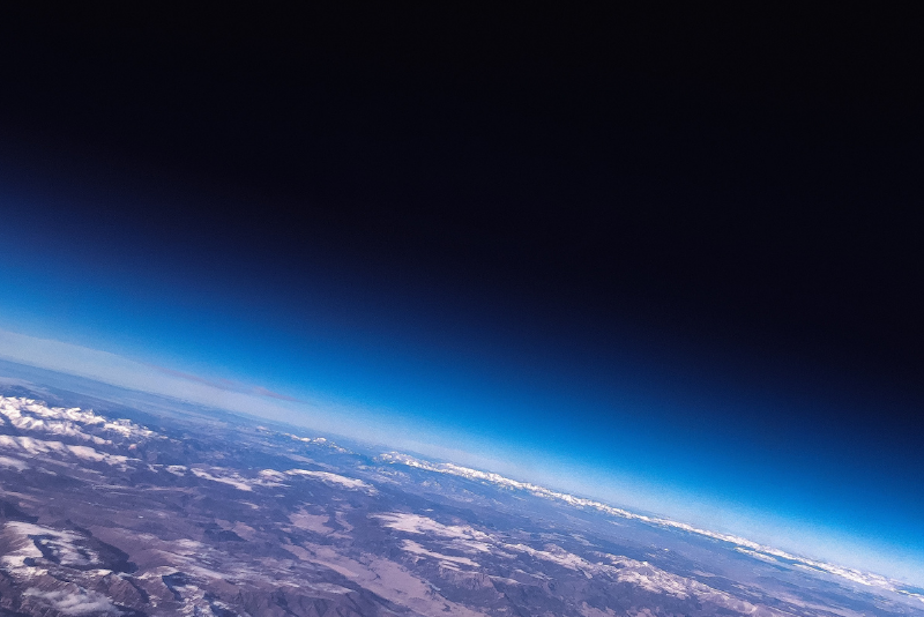Why U.S. Sen. Cantwell has her eye on the sky

You wouldn't immediately realize it by looking at the night sky, but there is a lot of "space junk" up there.
That's why U.S. Sen. Maria Cantwell, a Washington Democrat, has got her eye on cleaning up a sky-high mess. Cantwell has proposed a bill, called the ORBITS Act, aimed at eventually removing expired satellites and other leftovers in orbit around Earth.
Such space junk, currently in orbit, has the potential to collide with a satellite used for weather monitoring, or communications. Or it could strike a spacecraft. It could also potentially fall to Earth in a fiery crash.
“There are more than 900,000 pieces of space junk passing over our heads every day, including abandoned Government satellites,” Cantwell said in a statement. “This bill will jumpstart the technology development needed to remove the most dangerous junk before it knocks out a satellite, crashes into a NASA mission, or falls to the ground and hurts someone. We must continue to explore space, and we have to do it safely.”
Sponsored
Space junk
A lot of satellites get launched into orbit. Many have expiration dates. After they go offline, they just linger up there, or sometimes they fall to Earth and burn up in the atmosphere. Sometimes they don't entirely burn up and crash into the ground. They also pose a threat to other satellites and spacecraft traveling through the area.
According to NASA, orbital-debris can be anything from defunct satellites to fragments of machinery, nonfunctional spacecraft, abandoned launch vehicle stages, and other human-made objects. While this is good fodder for movie premises, it's a bad situation for future missions in space. It's could also be bad for people on the surface.
Such space junk fell onto a farm in Grant County, Wash., in 2021. In that case, the falling junk was from a SpaceX rocket. It wasn't supposed to fall back to Earth. There are other objects up there that are expected to eventually fall. The Department of Defense's global Space Surveillance Network is monitoring more than 27,000 such pieces of orbital debris.
But there's far more in orbit, and Cantwell wants to take them down before they could potentially create mess on the surface, or hurt someone.
Sponsored
Cantwell's office notes that there are more than 1,300 companies in Washington state involved with the space economy, and many are concerned about the growing number of space junk.
In short, the ORBITS Act would: direct NASA to publish a list of potentially dangerous debris; create a program within NASA to develop methods/technologies for the removal of orbital debris; and update regulations for space junk.
Also supporting the ORBITS Act are U.S. Sens. John Hickenlooper (D-Colo.), Cynthia Lummis (R-Wyo.) and Roger Wicker (R-Miss.).


